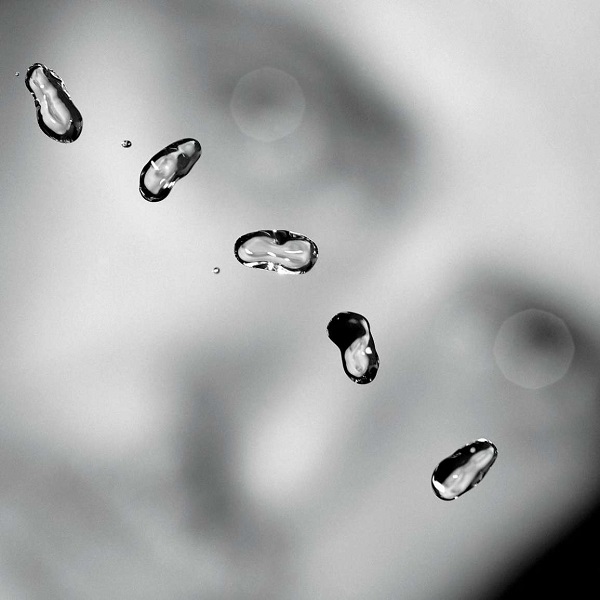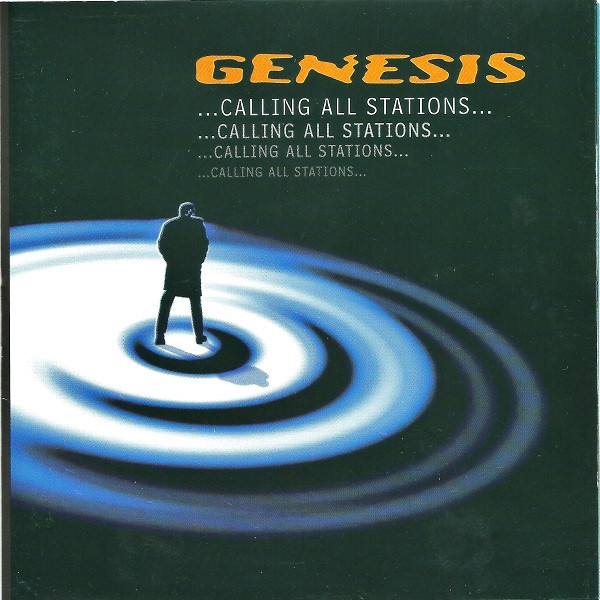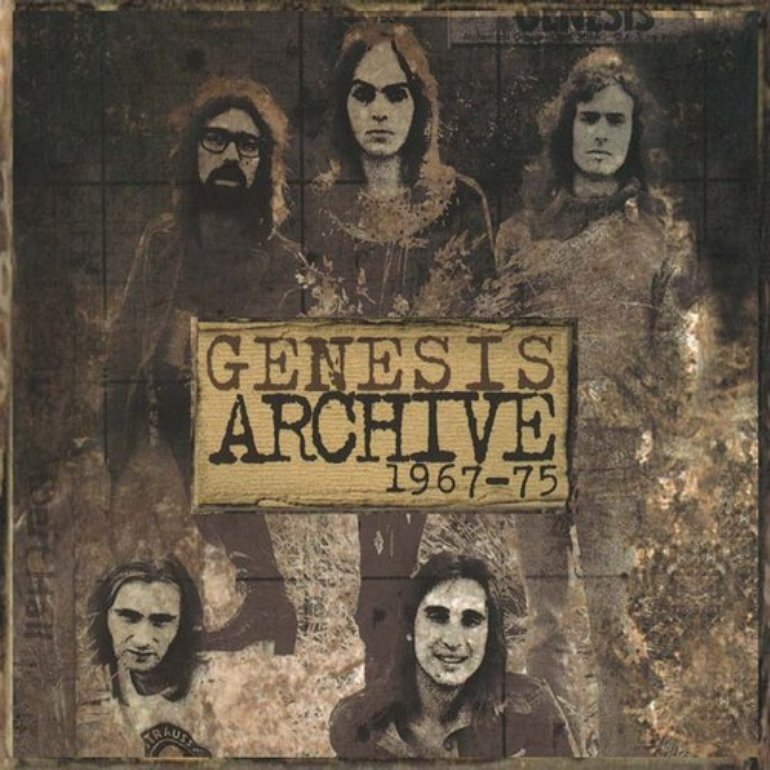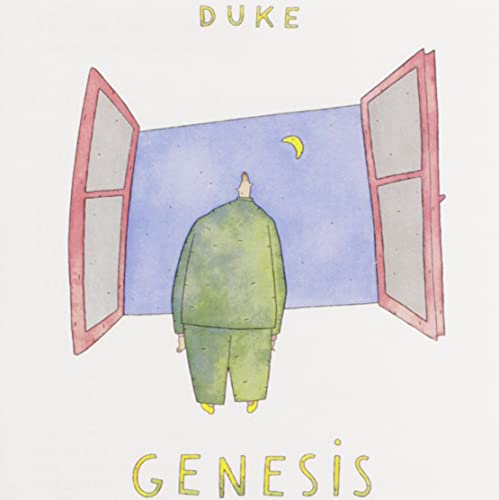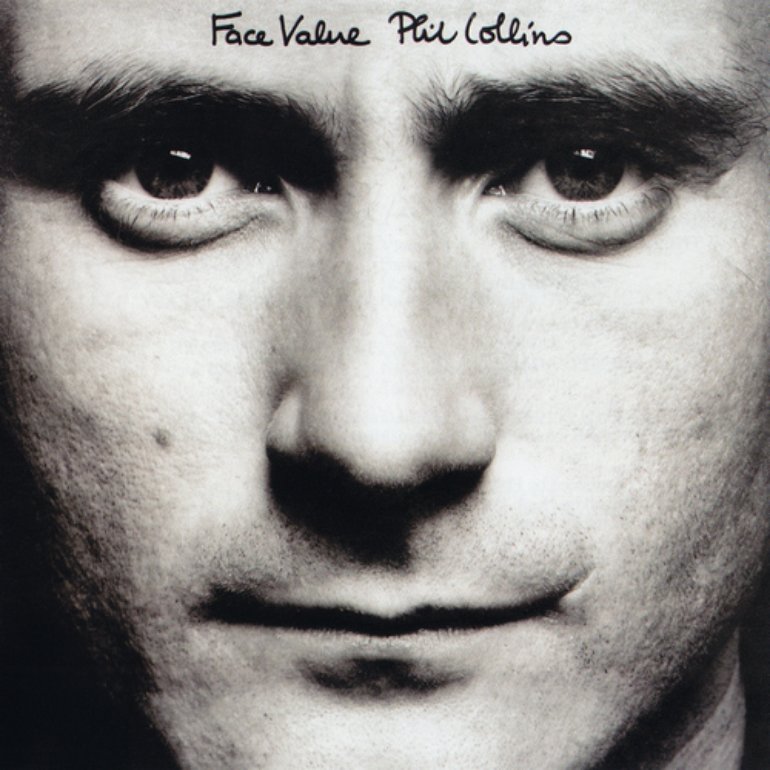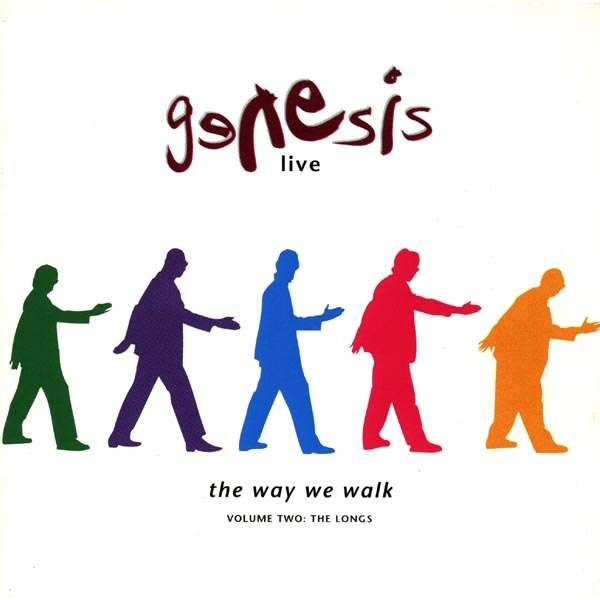On 23 September 2002, Peter Gabriel’s album Up was released.
Continue reading “Up (2002) – Peter Gabriel”Calling All Stations (1997) – Genesis
After Phil Collins’ departure from Genesis in 1996, the remaining two members Tony Banks and Mike Rutherford kept writing music and hired a new singer: Ray Wilson, born in 1968, known as lead vocalist of the band Stiltskin.
Continue reading “Calling All Stations (1997) – Genesis”Archive I 1967 – 1975 (1998) – Genesis
In June 1998, Genesis released their first of two ‘Archive’ box sets: Archive 1967 – 1975 covers the era with Peter Gabriel as lead vocalist.
The plans to release ‘Archive’ box sets dated back to 1994
After the release of their last studio album Calling All Stations* in 1997, Genesis began putting together unreleased material from their history. The idea dated back to 1994. Originally there were plans to release three box sets. The first would have featured the Gabriel years, the second the period from the mid 1970’s to the early 80’s and the last the period from the mid 80’s to the early 90’s.
But over the years, there were delays and plans were changed. The recordings were released on two box sets, the first one being Archive 1967-75* , released in 1998, the second one being Genesis Archive 2 1976-1992*, released in 2000, which covers the era with Phil Collins on lead vocals. Both sets feature unreleased live performances, studio tracks and demo songs.
A complete live performance of The Lamb Lies Down On Broadway
Archive 1967 – 1975 is a box set that includes four discs. The mixing was done by Genesis producer Nick Davis. The first two discs feature a complete live performance of Genesis’ magnum opus The Lamb Lies Down on Broadway*. When the band toured the concept album in 1974/75, they played the whole double album. After this tour, Peter Gabriel left the band. The live performance in the box set is from The Shrine Auditorium, Los Angeles. Unfortunately, most of Peter Gabriel’s stories about the adventures of Rael between the songs were left out.
Peter Gabriel re-recorded his vocals at Real World Studios in 1995
Also, it is not a completely live recording. Peter Gabriel and former lead guitarist Steve Hackett re-recorded some of their parts in 1995. You can hear the difference in Gabriel’s voice if you compare the studio versions from 1974 to the live version on Archive I. Gabriel recorded his vocals at his Real World Studios. Also, the last song ‘It’, fades out because the tape machine at the Shrine ran out halfway through the song.
The live performance in general sounds more powerful than the studio version and the crowd seems to be enthusiastic. Apart from that, the songs are almost identical to the studio versions. The only exception is ‘The Waiting Room (Evil Jam)’, which was an instrumental with lots of space for improvisation that was therefore played differently every night. Apart from that, especially the title track, ‘Fly On A Windshield’ and ‘Carpet Crawlers’ stand out.
A live performance of ‘Supper’s Ready’ from 1973
Disc 3 includes live performances from the Rainbow Theatre in London, recorded on the Selling England By the Pound* tour in 1973. We finally get to hear songs like ‘Dancing With The Moonlight Knight’ and ‘Supper’s Ready’ live with Peter on vocals on an official release. Here, the stories are included. It also features a 1971 BBC recording of ‘Stagnation’ and b-sides and studio tracks from that era like ‘Twilight Alehouse’ and ‘Happy The Man.’
The last disc is the most interesting one, at least for the fans. It features songs from the band’s earliest period, still with Anthony Phillips on guitar. There are BBC sessions and many demo songs. You can hear the band becoming Genesis on this disc. Some of the tracks are real gems, from the early version of ‘Dusk’ to the appealing ‘Hey!’. There is an atmosphere in these early recordings that went missing after Ant Phillips left the band.
Apart from the four discs, there is a 82-page booklet which contains the band’s history and interviews with band members and associates.
So Archive 1967 – 1975 is a quite interesting box set. We finally get to hear official live versions of Gabriel-era songs sung by him. The only official live release with him had been Live* from 1973, which only covers songs from Trespass*, Nursery Cryme* and Foxtrot*. The inclusion of b-sides and unreleased studio tracks like ‘Twilight Alehouse’ make this box set special. Some would argue that disc 4 is only for the hardcore fans, but it also is the most surprising and most interesting of the four discs. Unfortunately some rare tracks and demos that are known to exist did not make it onto the box set. But all in all, Archive 1967-75 is an extraordinary release. Fans seemed to agree with that: It reached no. 35 in the UK charts in 1998.
The band met at Heathrow Airport to promote the release
To promote the release of Archive I, Genesis members past and present reunited for a photo shoot (and a following dinner) at Heathrow Airport in May 1998. There were Tony Banks, Peter Gabriel, Anthony Phillips, former drummer John Silver, Phil Collins, Steve Hackett and Mike Rutherford. The band’s first drummer Chris Stewart only made it to the dinner. Trespass-era drummer John Mayhew did not attend the event.
Genesis’ next ‘Archive’ release would be in 2000. It would be entitled Archive II 1976 – 1992 and feature the period with Phil Collins as lead vocalist.
*= affiliate link
Duke (1980) – Genesis
The Album That Defined a New Era for Genesis
On March 28, 1980, Genesis released Duke, an album that marked a return to their roots as a band that thrived on jamming and improvisation. After years of bringing in individually written songs, the trio rediscovered the creative spark of working together. The result? One of their most celebrated albums—featuring the instant classic “Turn It On Again.”
Phil Collins Steps Into the Spotlight as a Songwriter
By the end of their grueling 1978 world tour, Phil Collins’ personal life was in turmoil. His marriage had fallen apart due to the relentless touring schedule, and in a last attempt to save it, he took a break from Genesis. While Tony Banks and Mike Rutherford used the time to release their first solo albums, Phil moved to Canada to try and rebuild his family life.
But it wasn’t meant to be. When his efforts failed, Phil returned to England, alone in his home in Surrey, and turned to music as an outlet – something he had never done quite like this before. For the first time, he began writing songs on his own, setting the stage for his future solo success.
Genesis Reignite Their Creative Energy
In 1979, Genesis regrouped at Phil’s home to start work on their next album. To Tony and Mike’s surprise, Phil had become a songwriter in his own right. While each member brought in individual ideas, the real magic happened when they began jamming again – something they hadn’t done since Peter Gabriel left the band. The result was a fresh, modern sound that still had the unmistakable Genesis touch.
“Turn It On Again” – The Song That Became a Genesis Anthem
Fans got their first taste of the new album in early March 1980, when Turn It On Again was released as a single. From the very start, it was clear this was a defining Genesis track.
Built around a complex 13/8 time signature, the song somehow felt effortlessly catchy -listeners didn’t even notice the odd rhythm until they tried to clap or tap their feet along with it. The song became a staple of Genesis’ live shows, appearing on every tour since its release. From 1983 onward, it was transformed into a high-energy rock medley, featuring snippets of classic cover songs.
Turn It On Again wasn’t just a hit; it became synonymous with Genesis. The band later named a greatest hits collection after it (Turn It On Again: The Hits) and even titled their 2007 reunion tour Turn It On Again – The Tour.
On an album filled with outstanding tracks, this driving, offbeat number had a special place. It reached #8 on the UK charts, earning Genesis a live performance on Top of the Pops – a rare treat for the band at the time.
Duke – The Story of Albert
The album itself, Duke, was released in late March 1980 and became Genesis’ first-ever UK #1 album.
Its artwork introduced the world to Albert, the faceless character on the cover, and the music inside told a loose narrative about fame, fortune, and downfall. The album opened with Behind The Lines, a grand, euphoric track that quickly shifted into a soulful, anthemic song – a bold statement from a band entering the new decade.
Together, Phil, Tony, and Mike proved once again that they were the core of Genesis, the same trio behind some of their greatest musical moments: the ‘Apocalypse of 9/8’-climax of “Supper’s Ready,” the instrumental finale of “The Cinema Show,” and large portions of The Lamb Lies Down on Broadway.
“Misunderstanding” – A Glimpse into Phil Collins’ Future
Despite the collaborative approach, each band member contributed individual songs to Duke. Among them was Misunderstanding, one of the first songs Phil ever wrote entirely by himself for Genesis.
Unlike their usual intricate arrangements, Misunderstanding was a straightforward, heartfelt pop song, with simple yet effective lyrics and a laid-back groove. Surprisingly (or maybe not), it became a bigger hit in the U.S. than in the UK, reaching the Top 20 and offering an early glimpse of Phil’s future success as a solo artist.
A Favorite Among Fans – and the Band
Duke remains a favorite among Genesis fans, and Tony Banks often cites it as one of his personal top Genesis albums. He especially highlights “Duchess”, a song that blends Genesis’ progressive roots with their evolving pop sensibilities.
As the first Genesis song to feature a drum machine, Duchess set the stage for much of their later work. The song’s story about an artist’s rise and fall even mirrors the band’s own journey – a theme that made it particularly special for Tony. Despite its deceptive simplicity, he considers it to be as emotionally powerful as “Supper’s Ready.”
Duke – The Album That Redefined Genesis
With Duke, Genesis proved they could balance artistic ambition with mainstream appeal. It marked a transition – a bridge between their progressive past and the radio-friendly sound that would define their 1980s success.
More than 40 years later, it remains one of their most important albums.
🎧 What’s your favorite track from Duke? Let us know in the comments!
Face Value (1981) – Phil Collins
In February 1981, Phil Collins unveiled his debut solo album, Face Value, marking a significant departure from his role as Genesis’s frontman. The album not only showcased Collins’s personal and musical evolution but also cemented his status as a prominent solo artist in the 1980s.
Genesis and Personal Turmoil
By 1978, Collins had transitioned from Genesis’s drummer to its lead vocalist. The band’s 1978 album, …And Then There Were Three…, featured the hit “Follow You Follow Me,” signaling a shift towards more concise and direct songs. During this period, Collins faced personal challenges; his wife, Andrea, threatened to leave due to his extensive touring commitments. Upon returning from a tour, Collins discovered that Andrea had moved to Canada with their children. Despite efforts to reconcile, including a move to Vancouver, the marriage ended in divorce.
Creation of Face Value
In the aftermath of his divorce, Collins channeled his emotions into music. He set up a home studio in Surrey, equipped with a piano, drum machine, and an 8-track tape recorder. Here, he began crafting demos that delved into his personal experiences. When Genesis regrouped to work on their 1980 album, Duke, Collins presented some of these demos. Two tracks, “Misunderstanding” and “Please Don’t Ask,” were included in the album. Encouraged by the positive reception, Collins decided to pursue a solo project, collaborating with producer Hugh Padgham to develop his demos into a full-length album.
Musical Diversity and Notable Tracks
Face Value is a tapestry of various musical styles, reflecting Collins’s diverse influences. The opening track, “In the Air Tonight,” is renowned for its haunting atmosphere and the iconic drum break that has since become legendary. The song’s lyrics were largely improvised, capturing the raw emotion of the moment.
Another standout track, “I Missed Again,” introduces a brass section featuring the Phenix Horns, known for their work with Earth, Wind & Fire. This collaboration infused the song with a vibrant, funky energy, a sound that would become a hallmark of Collins’s future solo endeavors.
The album also explores a range of genres:
“The Roof Is Leaking”: A track with Delta blues and country influences, adding to the album’s eclectic nature.
“You Know What I Mean”: A poignant ballad showcasing Collins’s vulnerability, accompanied solely by piano and vocals.
“Hand in Hand”: An instrumental piece blending jazz and world music elements, highlighting the talents of the assembled musicians.
Commercial Success and Legacy
Upon its release, Face Value received critical acclaim and achieved significant commercial success. The album topped the UK Albums Chart for three weeks and reached No. 7 on the US Billboard 200. It has since sold over 5 million copies in the US and over 1.5 million in the UK. The success of Face Value not only established Collins as a solo artist but also set the stage for a series of successful albums throughout the 1980s.
In retrospect, Face Value stands as a testament to Phil Collins’s ability to translate personal adversity into a universally relatable and sonically diverse album. Its enduring appeal lies in its raw emotion, innovative production, and the seamless fusion of various musical styles.
The Longs (1993) – Genesis
Released in January 1993, Live – The Way We Walk, Volume Two: The Longs marked the end of an era for Genesis. Not only was it the band’s last release with Phil Collins before his departure, but it also became their final UK number-one album. As the second volume of the The Way We Walk live series, The Longs captured the epic and progressive side of Genesis, contrasting with Volume One: The Shorts, which focused on the band’s chart-topping hits.
Continue reading “The Longs (1993) – Genesis”
